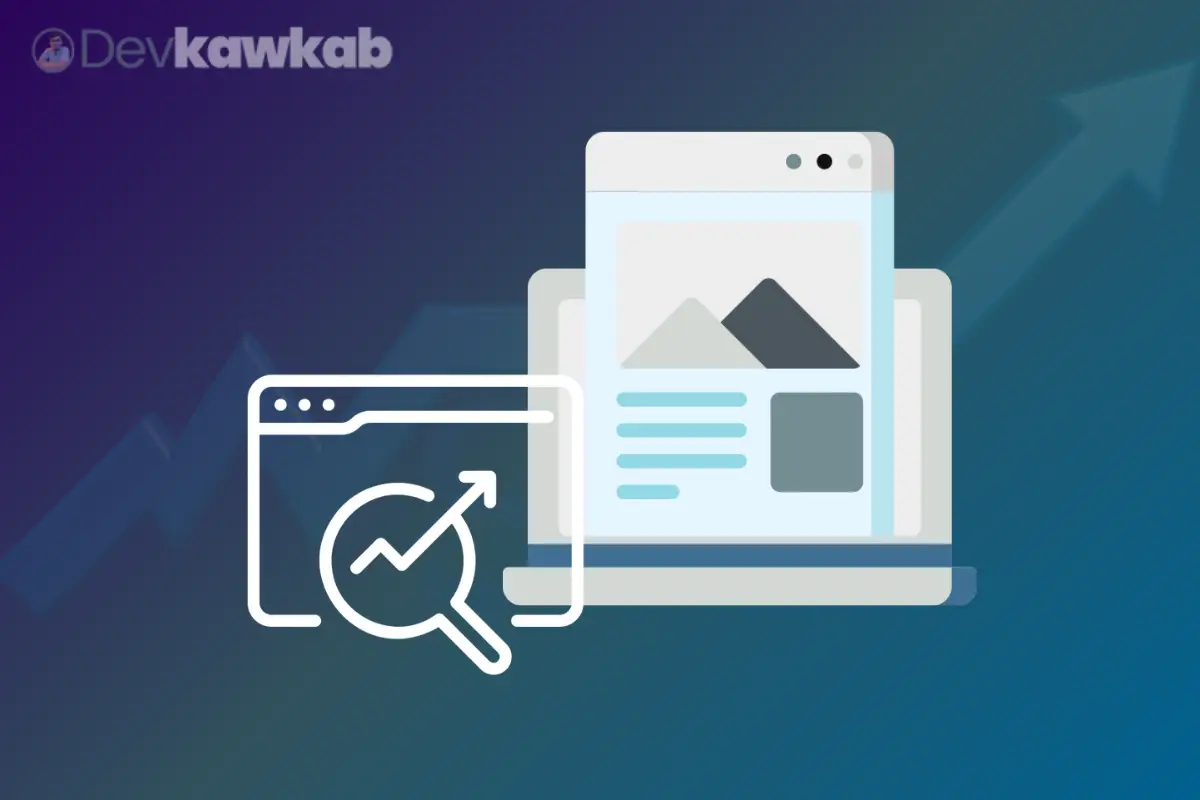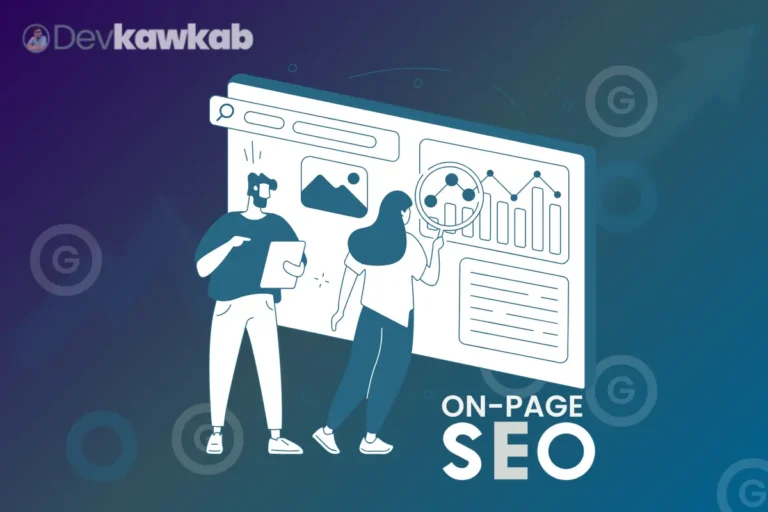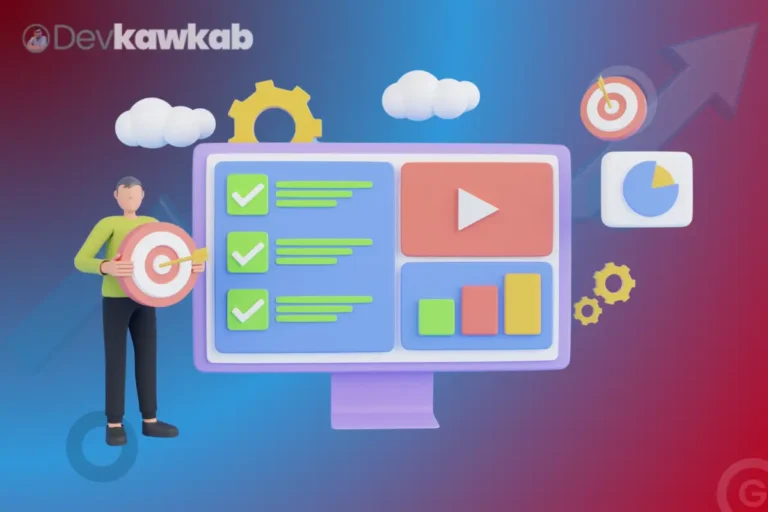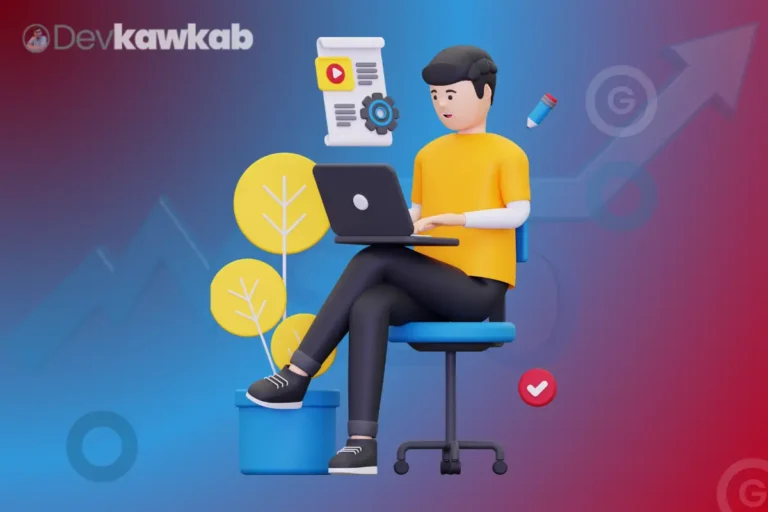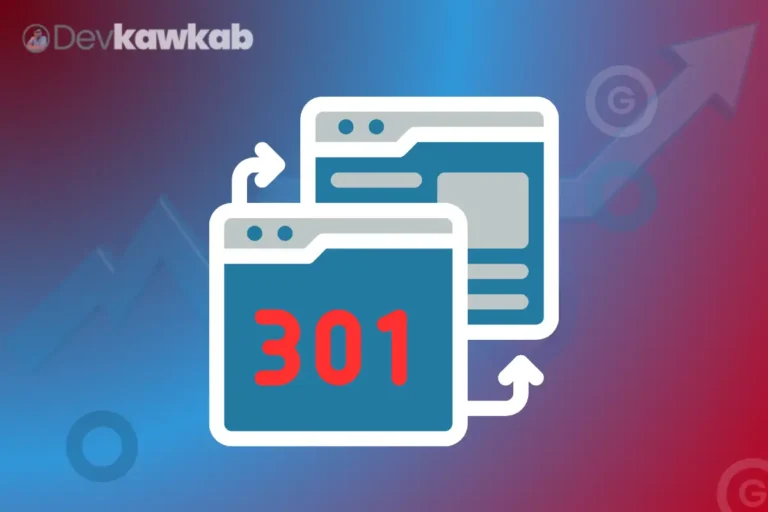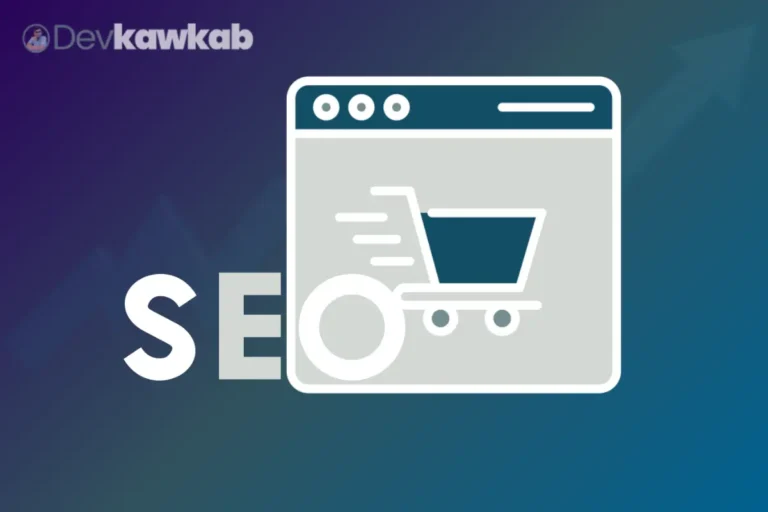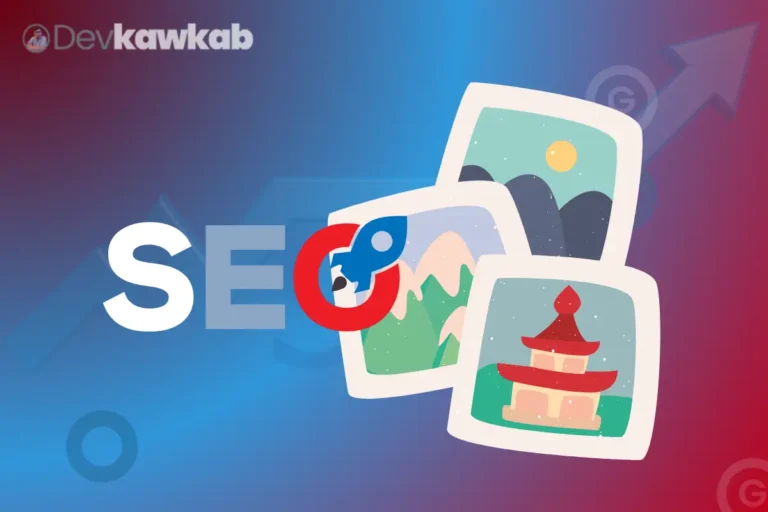This is a comprehensive look at why on-page SEO is important. Understand the critical role it plays in enhancing your website’s visibility and performance.
In this article, you’ll learn how to:
Let’s get started!
Read More – On Page SEO for Local Business
What is On-page SEO and How Does It Differ from Off-page SEO?
On-page SEO, also known as on-site SEO, refers to the practice of optimizing elements within a webpage to enhance its visibility in search engines.
Think of it as tidying up your room before showing it to guests; you want everything to look appealing and organized.
On-page SEO includes optimizing content, HTML, meta tags, and images to ensure that the webpage is relevant and user-friendly.
Differences Between On-page and Off-page SEO
| On-page SEO | Off-page SEO |
|---|---|
| Optimizes elements within the site | Focuses on external factors |
| Involves content, meta tags, and URLs | Includes backlinks and social media |
| Offers direct control over changes | Relies on external websites and platforms |
| Aims to enhance user experience | Aims to build authority and trust |
By understanding these differences, you can better grasp the unique role each type of SEO plays in boosting your site’s performance.
Why Does On-page SEO Impact Search Engine Rankings?
Search engines, like Google, utilize complex algorithms to determine how relevant a webpage is to a user’s search query.
On-page SEO is crucial in this process because it provides the necessary signals that help search engines rank pages accurately.
How Search Engines Analyze On-page Factors?
- Keywords: The inclusion of relevant keywords within the title, headings, and content informs the search engine about the page’s topic.
- Content Quality: High-quality, unique content that satisfies user intent tends to rank higher. If your content reads like a novel and answers users’ questions effectively, you’re already winning!
- Meta Tags: Title tags and meta descriptions give search engines a preview of your content. Crafting compelling and informative tags can significantly influence click-through rates.
- Page Structure: A well-organized structure using headings (H1, H2, H3) helps search engines understand the hierarchy of information on your page.
In essence, the better optimized your on-page elements are, the higher your chances of ranking well on search results!
How Does User Intent Influence On-page SEO Strategies?
User intent refers to the goal or motivation behind a search query.
Are users looking for information, trying to make a purchase, or seeking navigation? Understanding this can revolutionize your on-page SEO strategy.
Types of User Intent
- Informational Intent: Users seek to learn or discover something. For example, “What is on-page SEO?” Here, your content should provide in-depth information, visuals, and clear answers.
- Navigational Intent: Users are looking for a specific website or page. For instance, “Facebook login.” Optimizing your URLs and making your site easy to navigate is key.
- Transactional Intent: Users are ready to make a purchase or complete a transaction. Phrases like “buy shoes online” indicate this intent. Using compelling calls-to-action (CTAs) in your content can drive conversions.
By aligning your on-page content with user intent, you ensure that visitors find what they are looking for, increasing engagement and satisfaction!
What Are the Key Elements of On-page SEO?
When it comes to on-page SEO, there are several crucial elements that can significantly impact your rankings. Let’s break them down.
01. Content Quality
Quality is king! Your content should be engaging, informative, and relevant to your target audience.
Always aim for originality and avoid duplicating content from other sites. High-quality content naturally attracts backlinks, which is a bonus for your SEO.
02. Keyword Optimization
Identify relevant keywords and incorporate them naturally throughout your content.
Avoid keyword stuffing; instead, use them strategically in titles, headings, and the first paragraph to signal to search engines what your page is about.
03. Title Tags
Your title tag is like a storefront sign; it should clearly indicate what’s inside.
Ensure your title is descriptive, includes your main keyword, and stays within 50-60 characters so it doesn’t get cut off in search results.
04. Meta Descriptions
Although meta descriptions don’t directly affect rankings, they influence click-through rates.
A compelling meta description that summarizes your content can persuade users to click on your link. Keep it under 160 characters and include a call-to-action!
05. URL Structure
Creating SEO-friendly URLs is crucial. Keep them short, descriptive, and include keywords when possible.
This helps search engines and users understand what the page is about before even clicking on it.
06. Internal Linking
Linking to other relevant pages on your site helps search engines crawl your website more effectively and keeps users engaged longer.
Use descriptive anchor text to give context about the linked content.
For quick internal linking setup, you can use tools like Link Whisper or LinkBoss.
07. Image Optimization
Images can enhance your content, but they need to be optimized as well. Use descriptive file names and alt text that includes relevant keywords.
This helps search engines understand your images and can improve your visibility in image searches.
08. Mobile Optimization
With more users accessing websites via mobile devices, having a responsive design is essential.
Ensure your site is easy to navigate on smaller screens to improve user experience and rankings.
By mastering these key elements, you position your website for success in the competitive digital landscape.
How Does On-page SEO Improve User Experience (UX)?
User experience (UX) is a significant ranking factor for search engines.
When users have a positive experience on your site, they are more likely to stay longer and engage with your content.
Here’s how on-page SEO contributes to UX:
01. Fast Loading Times
A slow website can frustrate users and lead to high bounce rates.
Use tools like Google PageSpeed Insights to identify areas for improvement and ensure your site loads quickly.
02. Intuitive Navigation
Clear navigation helps users find what they’re looking for quickly.
Use simple menu structures, breadcrumbs, and a search function to guide users effortlessly through your site.
03. Engaging Content Layout
Use headings, bullet points, and images to break up text and make your content easy to skim.
A well-structured layout enhances readability and keeps users engaged.
04. Clear Calls-to-Action (CTAs)
Effective CTAs guide users on what to do next, whether it’s signing up for a newsletter, downloading a resource, or making a purchase.
Make them clear, concise, and compelling.
05. Mobile Responsiveness
As mentioned earlier, a mobile-friendly design is crucial for user experience. Ensure that your site looks great and functions well on all devices.
By enhancing the user experience through on-page SEO, you not only satisfy visitors but also earn favor from search engines, which can lead to improved rankings!
Why is Content Quality Crucial for On-page SEO Success?
Content quality is paramount when it comes to on-page SEO. It’s not just about using the right keywords; it’s about delivering value to your readers.
Here’s why quality content matters:
01. Meets User Expectations
High-quality content addresses user queries effectively.
If users find what they’re looking for on your site, they’re likely to stay longer, reducing bounce rates and increasing engagement.
02. Establishes Authority
Creating informative, well-researched content helps establish your website as an authority in your niche.
This builds trust with your audience and encourages them to return for more.
03. Encourages Sharing and Backlinks
Engaging content is more likely to be shared on social media and linked to by other websites.
This not only boosts your visibility but also improves your site’s authority and ranking potential.
04. Aligns with Search Intent
Quality content that aligns with user intent improves your chances of ranking higher. Google’s algorithms prioritize content that is useful and relevant to users.
05. Supports SEO Best Practices
Well-written content naturally incorporates keywords, adheres to formatting best practices, and is easy to read, all of which contribute to better SEO performance.
In a nutshell, investing in high-quality content pays off in the long run, both in terms of SEO and user satisfaction.
What Role Do Internal Links Play in On-page SEO?
Internal links are hyperlinks that point to other pages within your website.
They play a vital role in on-page SEO and can enhance both user experience and search engine rankings.
01. Improve Site Navigation
Internal links help users navigate your site more easily.
When you link related content, you create a logical flow that keeps users engaged and encourages them to explore more of your site.
02. Distribute Page Authority
Linking from high-authority pages to newer or lower-ranking pages can help distribute authority throughout your site.
This can improve the visibility of those pages in search results.
03. Enhance Crawling and Indexing
Search engine crawlers follow internal links to discover new content on your site.
A well-structured internal linking strategy can ensure that all your pages are indexed effectively.
04. Support Content Context
Using internal links with descriptive anchor text provides context for both users and search engines.
It helps users understand what to expect when they click on a link, enhancing their overall experience.
05. Increase Page Views
By encouraging users to explore related content through internal links, you can increase the average number of pages viewed per visit, which can signal to search engines that your site is valuable and engaging.
Incorporating a smart internal linking strategy into your on-page SEO can significantly enhance your website’s performance.
How Does On-page SEO Contribute to Long-term ROI?
Investing in on-page SEO isn’t just a one-time task; it’s a strategy that pays dividends over time.
Here’s a deeper look at how effective on-page SEO can lead to substantial long-term returns on investment (ROI):
01. Sustainable Traffic Growth
When you optimize your website for search engines, you improve its visibility in organic search results.
Unlike paid advertising, where traffic stops when you stop funding the ads, well-optimized content continues to attract visitors long after publication.
- Long-term Strategy: Each piece of optimized content becomes a potential traffic source. With consistent updates and SEO efforts, these pages can maintain or even increase their visibility over time.
- Compounding Effect: As your site gains authority and rankings for multiple keywords, the cumulative effect can result in exponential traffic growth.
02. Cost-effective Marketing Strategy
On-page SEO is one of the most cost-effective digital marketing strategies available.
Unlike traditional advertising, which often requires ongoing spending, the costs associated with on-page SEO can lead to sustained results without continual investment.
- Lower Long-term Costs: Once you have optimized your content and site structure, the ongoing costs are minimal compared to paid campaigns. You may only need to invest time in periodic updates and optimizations.
- Higher Value Leads: Organic traffic generated through effective SEO often results in higher-quality leads since users actively search for the information or products you offer, making them more likely to convert.
03. Higher Conversion Rates
A well-optimized website isn’t just about attracting traffic; it’s also about providing users with the right experience that encourages them to take action.
Effective on-page SEO contributes to higher conversion rates through several factors:
- User Experience (UX): By ensuring that your site is user-friendly, loads quickly, and presents information clearly, you create an environment that facilitates conversion. Optimized content that directly answers user queries leads to higher engagement.
- Call-to-Action (CTA): Strategically placed and compelling CTAs guide users towards actions such as signing up for newsletters, making purchases, or requesting more information.
- Trust and Authority: High-quality, relevant content establishes your brand as an authority in your niche, which builds trust with users. Trust leads to conversions; users are more likely to engage with and purchase from brands they trust.
04. Increased Brand Authority
As your website improves its rankings for relevant keywords, your brand gains visibility in search engine results, which contributes to long-term brand authority.
- Building Credibility: Consistently ranking high for targeted keywords positions your brand as a go-to resource within your industry. This credibility attracts not just users but potential partnerships and collaborations as well.
- Word-of-Mouth Referrals: Satisfied visitors who find value in your content are likely to share it, leading to organic referrals. This not only increases traffic but also strengthens your brand reputation.
05. Long-lasting Results
One of the most appealing aspects of on-page SEO is its potential for long-lasting results.
Unlike other marketing efforts that require continuous investment, well-executed on-page SEO can deliver benefits for years.
- Content Longevity: Quality content that remains relevant can continue to attract traffic. Regularly updating your content ensures it stays current and valuable, extending its lifespan.
- Cumulative Growth: The more optimized content you create over time, the more significant your website’s overall authority becomes. This creates a compounding effect where your entire site benefits from the SEO improvements you make.
06. Enhanced Analytics and Insights
On-page SEO efforts also lead to better data collection and analysis, which can inform your broader marketing strategies.
- User Behavior Insights: By using tools like Google Analytics, you can track user behavior on your site. Understanding what content performs best helps you refine your strategy and focus on what resonates with your audience.
- Optimizing for Future Trends: Regularly reviewing your analytics allows you to adapt to changing trends and user preferences, ensuring that your site remains relevant and continues to draw traffic over time.
By focusing on these aspects, on-page SEO not only improves your website’s visibility and user experience but also ensures that you see substantial returns on your investment over the long haul.
It’s a powerful tool in the digital marketing toolbox, capable of delivering sustained growth and success.
Final Words
In conclusion, mastering on-page SEO is not just a good practice; it’s essential for digital success in today’s competitive landscape. By focusing on optimizing your content, URLs, and internal links, you set your website up for sustainable growth and increased visibility.
Remember, on-page SEO is the foundation that supports your entire digital marketing strategy. It not only improves user experience but also drives organic traffic, leading to higher conversions and long-term ROI.
So, what are you waiting for? Start implementing these on-page SEO strategies today and watch your website climb the search rankings like a champ!
